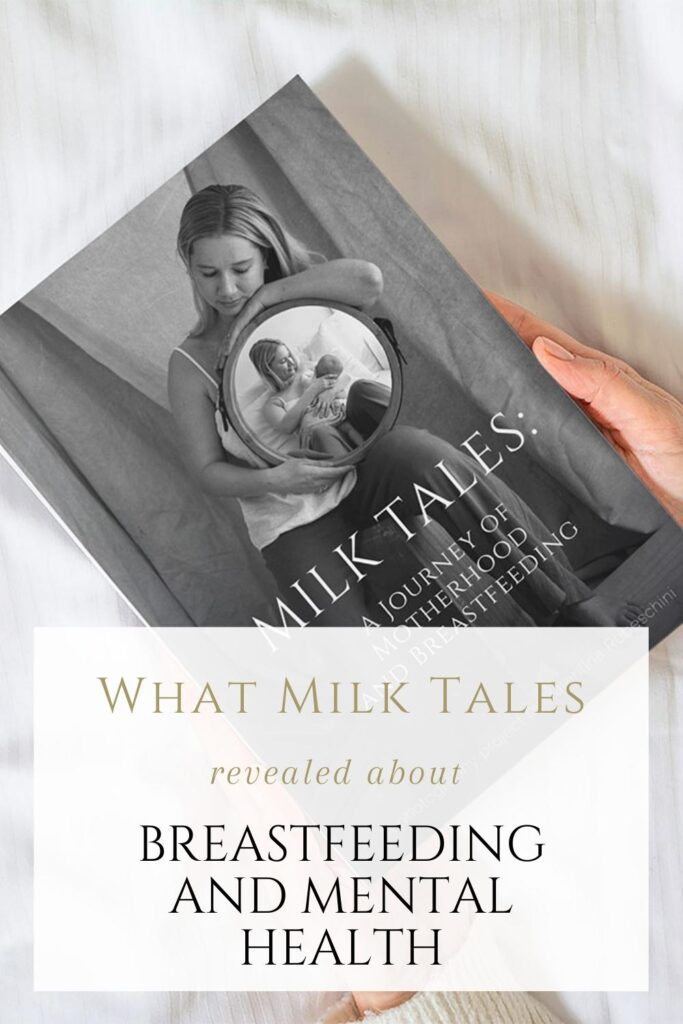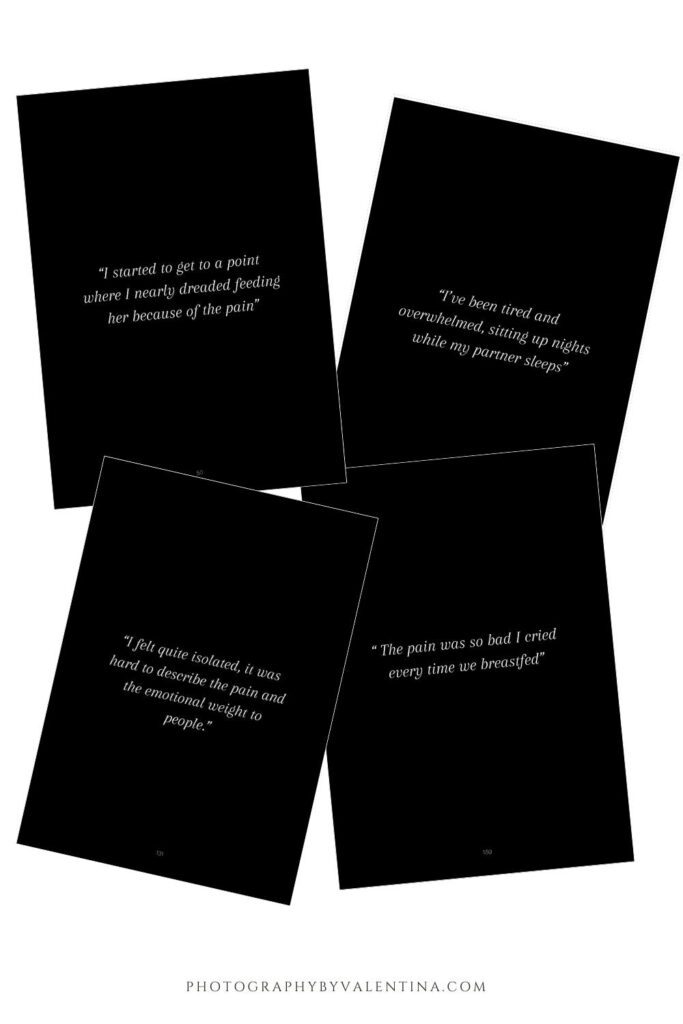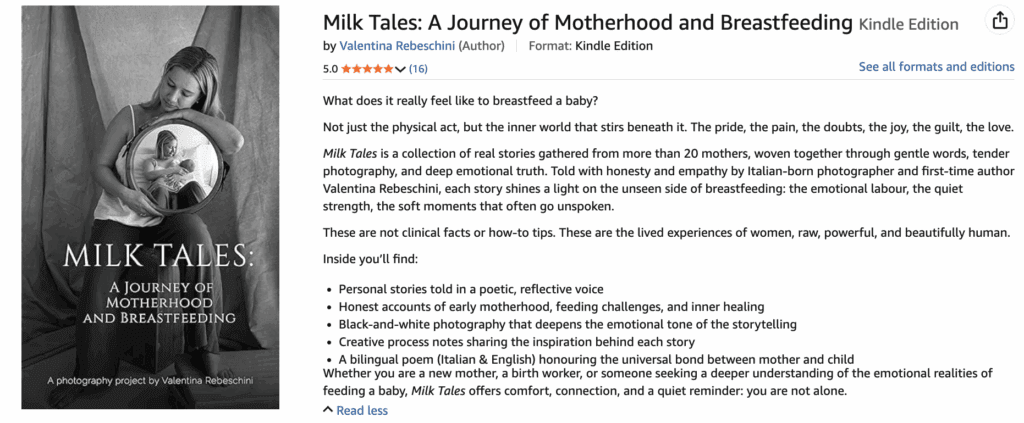I didn’t write Milk Tales: a Journey of Motherhood and Breastfeeding because I had the perfect breastfeeding story.
I wrote it because I didn’t.
My own journey into motherhood, and into breastfeeding, was messy, emotional, full of doubt, and laced with moments of deep connection. It was also lonely most of the times, confusing, and far from the serene, glowing images we often see in books or on screens. Those early days were so painful that it brings tears to my eyes 14 years later just talking about it.
Related article: Why I Wrote My Breastfeeding Book
When I started this project, I wanted to photograph the journey of breastfeeding. But what I uncovered, what mothers offered me, was so much more. They gave me their truths. Their raw, vulnerable, resilient truths.
And at the heart of so many of these stories was one recurring thread: breastfeeding and mental health.

The Unseen Layer of Breastfeeding
When we talk about breastfeeding, we often reduce it to a binary: breastfed or not, successful or not, natural or not. But what we rarely talk about, truly talk about, is the emotional toll it can take.
For some, it brings joy and connection. For others, grief, shame, or a lingering sense of failure.
Many mothers in Milk Tales shared that they didn’t feel seen when things were hard. They didn’t know if what they were feeling was “normal.” They carried questions like:
- Why am I crying while feeding my baby?
- Why does this feel so overwhelming?
- Am I the only one who feels like this?
The answer, of course, is no. You’re not the only one. And you’re not alone.
Science Confirms It Too
Research supports what so many mothers have told me through their tears and their laughter:
- Postpartum depression affects about 1 in 10 women according to NHS
- Postnatal anxiety is even more common, affecting 1 in 5 women
- Hormonal shifts after birth can intensify emotional sensitivity.
- The stress of breastfeeding challenges like pain, low supply, latch issues, can fuel anxiety, shame, and guilt.
In short: breastfeeding and mental health are deeply connected.
This doesn’t mean that breastfeeding causes mental health struggles. But it does mean that the experience, however it unfolds, can impact how we feel, how we see ourselves, and how we navigate early motherhood.
Related article: Turning Up the Volume on Maternal Mental Health
What the Stories Revealed About Breastfeeding and Mental Health
One mother shared how painful latch issues brought her to tears, but so did the unexpected beauty of quiet moments in the middle of the night.
Another described the bittersweetness of feeding one baby while holding the memory of another.
Another admitted she thought about quitting every single day but kept going, not out of pressure, but because it brought her a moment of calm in the chaos.
There were stories of pain and healing. Of milk soaked with memories of miscarriage or trauma.
Some stories were filled with guilt. Others, with joy.
Many carried both.
They spoke of feeling overwhelmed, unseen and also strong, proud, deeply connected.
These stories were layered. Tender. Sometimes messy. Often contradictory.
And that’s what makes them so powerful.

If You’re Struggling with Breastfeeding and Mental Health
This is your reminder:
You’re allowed to feel joy and grief at the same time.
You’re allowed to love your baby and not love breastfeeding.
You’re allowed to change your mind.
You’re allowed to ask for help.
You’re allowed to stop. Or keep going. Or do both in different seasons.
You are not failing.
You are not alone.
You are not broken.
The Power of Storytelling
One thing I’ve learned from Milk Tales is how healing it can be to simply be heard.
When a mother shares her story, she takes back her power.
She gives others permission to be honest, too.
She creates space for healing her own and someone else’s.
That’s why I believe stories are a form of care.
A form of connection.
A form of quiet revolution.
Related article: The Power of Breastfeeding Stories: How Sharing Your Journey Helps Others
If you’ve read Milk Tales and it resonated, thank you.
If you’ve shared it, reviewed it, or recommended it to a friend, thank you.
And if you haven’t read it yet, but this post touches something in you… I’d love for you to explore the book. Not because I want you to buy it. But because maybe, just maybe, it will remind you that your story is valid too.
Milk Tales is available on Amazon and you can read more about it on my website.
If you feel called, I’d love to hear your own story, too.
There’s room for all of it.


